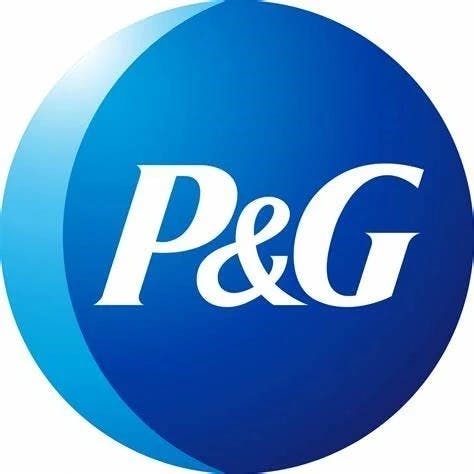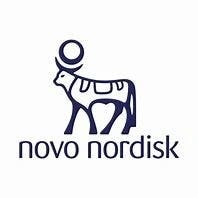SKF
SKF

Making a massive apps and data migration work
Manufacturing companies rely on digital support for operational systems, which must be updated regularly to maintain reliability. For SKF, a leading maker of industrial components such as ball bearings and seals with more than 42,000 employees worldwide, an aging on-premises Lotus Notes platform had grown unwieldy.
The Challenge: Given SKF’s 140 manufacturing sites and 15 technology centers in 129 countries, Notes had become costly to maintain due to mounting hardware and software expenses. SKF’s 6,000 unstructured Notes databases — more than 50% of which needed decommissioning — had become unmanageable over time. Plus, SKF envisioned automating key business capabilities and moving certain functions to the Web, but was unable to get there with Notes.
The Objective: SKF knew that the first focus needed to be on assessing its status and needs — requiring a consolidation exercise to reduce the immediate costs of Notes service, asn then a thorough cleanup and decommissioning of obsolete or aging apps.
The Solution: Using our proprietary NotesPower Migration Suite (NPMS) technology, HCLTech performed discovery, analysis and categorization of 1,800 existing Notes applications across 10 servers, which were subsequently consolidated into three. NPMS was able to identify business application owners, validate usage statistics and analyze which apps to decommission and which to migrate to Power Platform. NPMS generated dashboards that enabled SKF to make informed business decisions about those apps, resulting in a clear technology roadmap.
A robust change management plan was built into the assessment program to ensure that app owners were communicated with properly. Migration and post-adoption plans also included robust communications efforts. The Assessment App was enhanced to give application owners the ability to communicate about the technology roadmap and approve decisions. Then, our dedicated agile DevOps team built modern applications on Power Platform while archiving and decommissioning outdated apps.
The Impact: So far, 1,900 applications have been decommissioned and 425 have migrated to PowerApps, 50 of them using Dataverse storage, 300 using Dataverse for Teams and another 75 using SharePoint storage. Seven out of 10 existing servers were decommissioned successfully, and the number of Notes Domino client-access licenses was reduced from approximately 32,000 to only 8,000. The entire exercise was completed in six months, on time and on budget. Equally important, the new SharePoint- and Teams-enabled apps have improved SKF’s process efficiencies and dramatically enhanced inter-departmental collaboration.
After the initial exercise, HCLTech has continued working with SKF to migrate an additional 2,499 applications. Most will be backed up and archived, with 269 migrating to Power Platform. With HCLTech’s help, SKF expects to move completely out of Lotus Notes by the end of 2024.
Procter & Gamble
Procter & Gamble

Powering up sales data with Power Platform
Household products giant Procter & Gamble wanted to determine if Microsoft Power Platform could integrate with its SAP systems to give its sales representatives better access to customer data. The pilot, performed by HCLTech, far exceeded expectations, paving the way for an expanded relationship between Microsoft and P&G.
The Challenge: P&G wanted to establish if Microsoft Power Platform would be able to connect with its current SAP environment and allow sales staff to manipulate data imported directly from SAP. Historically, sales reps had created data in ServiceNow, then SAP would pick up tickets and make changes to the data in the SAP system, a cumbersome and time-consuming process.
The Objective: A pilot program sought to gauge how much time it would take to pull customer data from Microsoft Power Platform into the SAP system and establish if the platform could update multiple rows of data in SAP simultaneously. P&G wanted its sales reps to be able to interact with the data directly, such as to create a new customer or make updates to existing customer data. It also wanted to add a bulk update functionality.
The Solution: HCLTech carried out multiple projects testing four use cases to validate using an SAP connector to bring data into the Power Platform environment and then back into the SAP system. Using Microsoft Power Automate or an SAP connector, HCLTech showed it could surface information in SAP then bring it into Power Apps, where sales reps can manipulate the data and return it to the SAP system, enhancing the user experience.
The Impact: P&G had initially been casual adopters and users of the Microsoft Power Platform, engaging HCLTech to build Power Apps and connectors. Now, HCLTech is working in concert with P&G’s Microsoft account team, providing support for Power Apps and participating in regular syncs with P&G leadership. This lays the foundation for P&G and Microsoft to form a closer partnership that could grow to include 40,000 to 50,000 premium licenses and a Dataverse relationship.
Tenet Healthcare
Tenet Healthcare

Finding a Power Platform partner in HCLTech
Tenet Healthcare, a large health services corporation, migrated its data from a Pega legacy platform to Power Platform, but it needed a partner that could give it the proper support to get the most out of its Microsoft products. Tenet tapped HCLTech to provide application maintenance and development, as well as support for its Power Platform Center of Excellence and consulting services. The result: an overall increase in efficiency and productivity, reduced IT costs and an enhanced Power Platform partnership.
The Challenge: Tenet Healthcare wanted to migrate from its Pega legacy system to Microsoft Power Platform and sought a partner with expertise in Power Platform support and maintenance. Additionally, Tenet needed continued application development support for 13 canvas applications, which are used in low-code development environments to help make app creation accessible to a wide range of users without extensive programming knowledge. The company also wanted a partner that could support its Power Platform Center of Excellence with consulting for strategy and governance around the platform.
The Objective: In addition to its complex operations, with facilities around the country and more than 100,000 employees, Tenet Healthcare’s security model makes it difficult to use model-driven application development to manage its extensive data load. The company needed a partner that could leverage canvas apps to manage a complex data environment and take full advantage of low-code app development.
The Solution: HCLTech proved its merit by building Employee Exit Interview, an externally facing canvas app, to automate exit interviews with departing employees, who no longer had access to the system. Tenet was so pleased with the back-end app, it chose HCLTech to support its Microsoft products throughout their life cycle as its Power Platform partner. Besides Microsoft Power Apps, HCLTech also manages Tenet’s use of Power BI, Power Pages, Power Automate, Azure Data Factory, as well as Microsoft Dataverse and Azure. We have tasked more than 20 people to focus on the Power Platform, 12 on application development and eight dedicated to application maintenance and support.
The Impact: Switching to Power Platform has reduced Tenet Healthcare’s overall IT costs. The migration led to an overall increase in efficiency and productivity in financial and operational business processes. The application development and support maintenance teams meet quarterly with HCLTech to encourage transparency and strategize in areas where they can advance development and get the most bang for the buck from the platform. The app development teams are also working on new canvas applications for future deployment.
Novo Nordisk
Novo Nordisk

Building global digital compliance
Compliance is of utmost importance to Novo Nordisk. To ensure it, the global pharmaceuticals manufacturer had to overhaul and consolidate its worldwide legal document handling, which was being done manually. The company turned to HCLTech for help. By integrating Microsoft Azure OpenAI into a custom portal built on a low-code application, HCLTech created a searchable document repository that digests data stored in Microsoft Dataverse across the company, thereby reducing administrative workloads and streamlining searches to shrink compliance approval tasks from weeks to days.
The Challenge: Novo Nordisk’s legal team historically managed documents using email and Excel spreadsheets, with processes often dictated by the budgets and priorities of geographic regions and business units. This manual system resulted in disconnected data silos, with no standard process to review and approve legal requests, especially when they involved multiple parties. In a highly regulated industry, this disconnect made knowledge-sharing unmanageable and put compliance at risk.
The Objective: The HCLTech team proposed developing an ethics and compliance hub built on a low-code application using Microsoft Power Platform to replace the manual tasks and integrate Microsoft Teams and Outlook to facilitate tracking and approvals. By integrating the knowledge base surfaced through Dataverse into a custom portal powered by OpenAI, the hub uses generative AI to facilitate global and context-based search.
The Solution: The new ethics and compliance hub gave administrators more controlled access to manage legal document data and enabled super-users to better manage the approval process for requests. The initial project integrated Microsoft Copilot AI into six different systems to funnel all approval requests through Teams, with Copilot tracking the progress of approvals. The hub enables users to submit requests for approval and manages any accompanying documents submitted. Once requests have been reviewed by the legal department, documents are printed as PDFs and sent all those whose signatures are required.
The Impact: HCLTech connected the dots for Novo Nordisk using Microsoft Power Platform and OpenAI capabilities, simplifying the compliance process and improving the user experience. Compliance requests that once took weeks to complete are now accomplished in days. Streamlined access to information has also enhanced the accuracy and efficiency of legal teams, and Novo Nordisk has experienced a lower cost of administration needed for compliance tasks.
Johnson Controls
Johnson Controls

Reimagining warehouse operations with Power Apps
Johnson Controls, a maker of HVAC and electronics equipment, needed to enhance the radio frequency apps of its SAP ERP Central Component (ECC) that enable logistics in its warehouses. HCLTech stood up a program leveraging Microsoft Power Platform Suite, including Microsoft Power Apps, in six weeks, demonstrating how design thinking could improve the user experience. The project has been a game changer in unlocking process and productivity efficiencies in warehouse operations.
The Challenge: Johnson Controls was burdened with inefficient processes running on old systems with poor user interfaces. Navigation required multiple screens, and high labor turnover at the plants exacerbated productivity and training issues.
The Objective: The manufacturer needed a partner that could redesign, develop and implement a simplified role-based application for five existing radio frequency (RF) transaction screens, including stock inquiries, transfer order lists and activity reports. The pilot at Johnson Controls’ Norman, OK, plant would determine whether the company would expand the rollout to the rest of the business.
The Solution: HCLTech leveraged Microsoft Power Platform Suite for UI/UX design and development of RF screens and device touchpoints. We customized the warehouse functional modules on the SAP ECC system and designed the front-end screens using Power Apps to make transactions agile and simple, with improved features. We built, tested and delivered a conference room pilot demo on Day 1, providing Johnson Controls with a unique show-and-tell approach. Deployment to 120 shop-floor users was based on a phased adoption model using handheld and vehicle-mounted tablets and PCs.
The Impact: The pilot delivered the following tangible business benefits in a short period of time, accelerating warehouse efficiency and productivity and delivering meaningful impact to plant managers and business users in an agile six-week timeline.
- RF Power Apps design mitigated existing SAP re-login and data loss issues due to network connectivity drops in the warehouse.
- Design thinking helped achieve optimized RF device usability with refined screens and touchpoints.
- Streamlined material and bin movements mapped to job roles has improved inventory accuracy while reducing downtimes.
Based on the pilot, Johnson Controls was sold on the business value of the SAP ECC enhancement project and has awarded HCLTech a contract to simplify 14 more RF transaction screens. Additionally, Johnson Controls plans to work with us to roll out the same solution in six to 10 other plants.
.jpg)